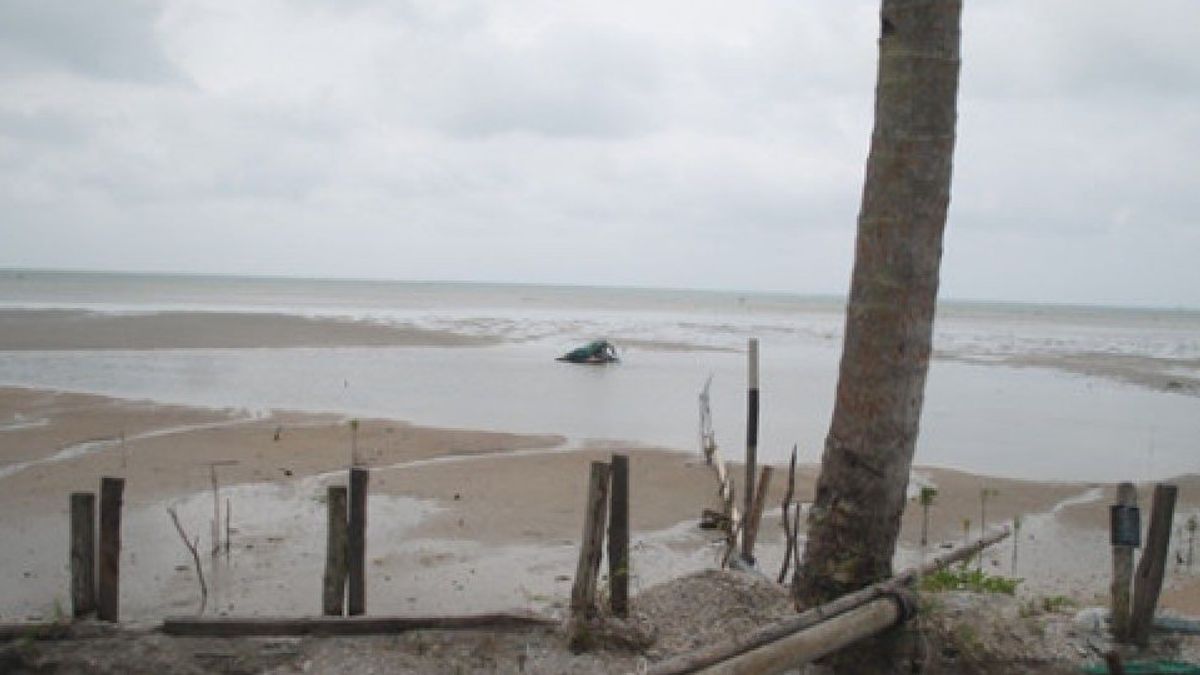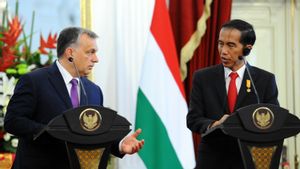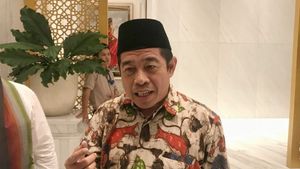JAKARTA - The Indonesian House of Representatives expressed disapproval with the Government's policy of reopening the tap for sea sand exports. The government is asked to review the policy because it can have an impact on marine ecology and cause social problems.
"We urge the Government to reconsider this policy because sand exports can cause marine ecology to be threatened by disasters! And if an ecological disaster occurs, it can harm Indonesia many times over the profits obtained," said Member of Commission IV DPR RI Daniel Johan, Thursday, September 19.
The sea sand export policy is stated in two regulations of the Minister of Trade, namely Regulation of the Minister of Trade (Permendag) Number 20 of 2024 and Permendag Number 21 of 2024. Both are derivatives of Government Regulation (PP) Number 26 of 2023 concerning Management of Sedimentation Results in the Sea, which was signed by President Joko Widodo in May 2023.
Daniel reminded that sea sand mining for export can cause problems in various aspects of natural life and society.
"The opening of the sea sand export tap has many impacts, both on the environment and on the social sector. Especially on the marine environment which has a serious impact," he said.
Daniel detailed the serious impact that could occur in Indonesian marine environments with sea sand mining such as relegation of Karang Reefs because sea sand extraction can damage coral reefs and other marine habitats. Another serious impact is the decline in water quality due to excavation activities that can cause pollution and changes in sea water quality.
Sea sand extraction can also accelerate beach erosion and change the shape of the coastline and disrupt the habitat of marine species that depend on the seabed substrate for breeding, explained Daniel.
"This policy can also cause a decline in species populations because excavation activities can threaten species living in these areas. Not to mention the huge potential for marine food net disruptions because environmental changes can affect food chains in marine ecosystems," he continued.
Daniel reminded another big impact of the sand mining policy for export, namely the loss of Indonesia's small islands as has happened before.
"The occurrence of small islands will disappear like 20 years ago during the exported sea sand mining process," said Daniel.
Sea sand exports from Indonesia abroad have actually been banned since 20 years ago, in the era of President Megawati Soekarnoputri. President Megawati's ban on sea sand exports is based on the reason that this action will only benefit other countries, such as Singapore, and harm Indonesia because of its low profits.
However, the Government said that the policy would not have a negative impact on the marine environment. The government claims that what is taken is sediment, not sand. The sediment is solid material consisting of fragments of rock, minerals, plant remains, and animals that are transferred and deposited in a new place that disrupts the ship's path.
In addition to threatening the environment, Daniel explained various social impacts that could be caused by the re-implementation of Indonesia's sea sand export policy.
"Large-scale sea sand mining can not only destroy marine ecosystems, but also have a direct impact on fish catch and fishermen's welfare," explained the legislator from the West Kalimantan I electoral district.
Not only that, the social impact of other sea sand exports is the risk of decreasing environmental quality which affects the livelihoods of coastal communities that depend on marine resources. Sea sand mining also has the potential to exacerbate the impact of the climate crisis.
Many fishermen who live depend on marine products to meet their daily needs. When the marine ecosystem is damaged, it is not only the environment that is threatened, but also the economy of coastal communities that are vulnerable, "said Daniel.
"The decline in fish catch can trigger an increase in poverty and widen the economic gap in coastal areas. This will have a direct impact on the income of fishermen who rely on the sea as a source of their livelihood," he added.
Daniel also stated that until the regulation was issued, Commission IV of the DPR RI as a partner of the Government in dealing with the environmental sector was not involved in discussing this regulation.
"At least what information is related to the basis for making regulations, we Commission IV we don't know, especially since the 20-year ban on sea sand exports is not allowed," said Daniel.
Commission IV of the DPR also received many aspirations from the public regarding the regulations issued at the end of the current government period. Daniel stated that many people gave rejection of the sand mining rules for export.
People question the existence of this regulation. Especially environmentalists, they are busy shouting against the sea sand export policy," he said.
Daniel said that although the sea sand export process could be carried out if the sand needs in Indonesia had been met, he still asked the government to involve coastal communities in the policy decision-making process. This is because the active participation of the people who will be affected by this policy is very important to ensure that these regulations do not harm them.
"We hope that the Government can review this sea sand export policy and take wiser steps. All of this is done to maintain environmental sustainability and people's welfare," said Daniel.
"We must ensure that the policies we take today do not destroy the future of future generations, both from the environmental and socio-economic side of the people," he continued.
BACA JUGA:
For information, the Government has stated that the policy of sea sand mining to be exported will not damage the marine environment. This was conveyed by a number of Ministers in the advanced Indonesian cabinet, such as Coordinating Minister for Maritime Affairs Luhut B. Panjaitan, Minister of Trade Zulkifli Hasan, Minister of Energy and Mineral Resources Bahlil Lahadalia and Minister of Maritime Affairs and Fisheries Sakti Wahyu Trenggono.
Even Minister Sakti Wahyu Trenggono stated that sedimentation sand is considered suitable for reclamation needs, including supporting the development of the Capital City of the Archipelago (IKN) and infrastructure by prioritizing domestic market obligation (DMO). Therefore, PP Number 26 of 2023 stipulates that sedimentation sand must be used for reclamation and infrastructure development, by prioritizing domestic needs.
Even so, Daniel did not agree with this. The government is asked to listen to the aspirations of the community, especially experts and environmentalists.
"Malaysia and Cambodia have banned sea sand exports to Singapore because the impact was very large. How come we are now backing down again," said Daniel.
"Policies should be made to maintain and benefit, not only prioritizing temporary interests but damaging various aspects of life for the long term," concluded the doctor from IPB University.
The English, Chinese, Japanese, Arabic, and French versions are automatically generated by the AI. So there may still be inaccuracies in translating, please always see Indonesian as our main language. (system supported by DigitalSiber.id)
















